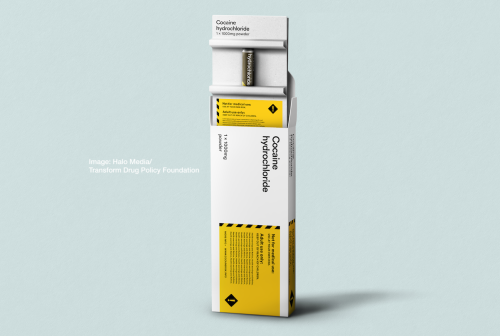7th June 2023
This blog makes the case for the legalisation and regulation of drugs and outlines why this is better than making drugs illegal. This piece is an edited extract of Transform’s Debating Drugs guide, which addresses common concerns about the legal regulation of drugs including:
- Levels of drug use
- The young and vulnerable
- Crime and security
- Health and human rights
Responsible governments already legally regulate many risky activities and other drugs effectively, including alcohol, tobacco and pharmaceuticals. So, far from being ‘radical’, legal regulation is in fact the norm. In reality, it is prohibition that is the radical policy.
Legal regulation of drugs means establishing formal controls over the production, supply and availability of drugs. This will generally include licensing regimes, systems of taxation, marketing regulations, health and safety requirements, age access controls and quality control standards. Setting out practical models for the effective legal regulation of drugs is core to Transform’s work.
Legal regulation means that access to drugs would be more restricted.
Although the legal regulation of drugs is sometimes characterised as a ‘liberalisation’ or ‘relaxation’ of the law, it is in fact the opposite: it is about bringing the drug trade within the law so that strict controls can be applied. Such controls are impossible to impose under prohibition
Legal regulation enables responsible governments to control which drugs can be sold, who has access to them, and where they can be sold. Under prohibition, it is organised crime grups and undergulated vendors who make these decisions
When governments have control of the market they can put age limits on products, whereas people selling drugs in the illegal market do not ask for ID
Under a system of legal regulation, many activities, such as sales to minors, would remain illegal and subject to sanctions
It is a caricature of the reform position to say that advocates of legal regulation want drugs to be freely available – sold, for example, in supermarkets. It is irresponsible in the extreme that alcohol and tobacco are already sold in this way. We should aim for better, stricter regulation of both legal and currently illegal drugs
We already legally regulate other risky substances such as alcohol and tobacco. The legal regulation of drugs is already similar to how to regulate other risky activities.
Prohibition was a leap into the unknown at the time. There was never any evidence that it would be effective. Now, after more than half a century of this policy, we know that it is not effective, instead it is costly and counterproductive
We already legally regulate many risky activities and substances effectively. Even some drugs prohibited for non-medical use – including opiates, amphetamines, cocaine and cannabis – are produced safely and securely for medical use without any of the chaos, violence and criminality of the illicit trade
Real reforms are taking place all over the world, including in Canada, the US, Europe, Uruguay and Bolivia
There would be no ‘one-size-fits-all’ approach: the riskier the drug, the stricter the controls that should be placed on it. Some less risky drugs, for example, would be sold by licensed retailers, while more risky drugs would only be available via medical prescriptions for people with drug dependencies. The supply of the most risky preparations, such as crack cocaine, would remain prohibited (although posession of any drug would no longer be crminalised)
We can apply the lessons learned from the control of other risky substances and activities – such as alcohol, tobacco, prescription drugs, gambling and sex work – to ensure that regulation promotes public health and safety
Change will not happen overnight – it will be phased and cautious, based on experimentation, with policy carefully adapting and evolving in response to emerging evidence. If policies do not work they can be revisited and, where necessary, reversed
Legal regulation can alleviate the problems caused by drug prohibition.
No one is claiming that legal regulation is a silver bullet for all the problems associated with drugs. The argument is that it can reduce, often dramatically, many of the disastrous problems caused by drug prohibition
To meaningfully address the wider challenges posed by drugs, legal regulation must be complemented by improvements in public health, education, prevention, treatment and recovery, as well as action on poverty, inequality and social exclusion
For more insight into legal regulation, please see our Debating Drugs guide.





